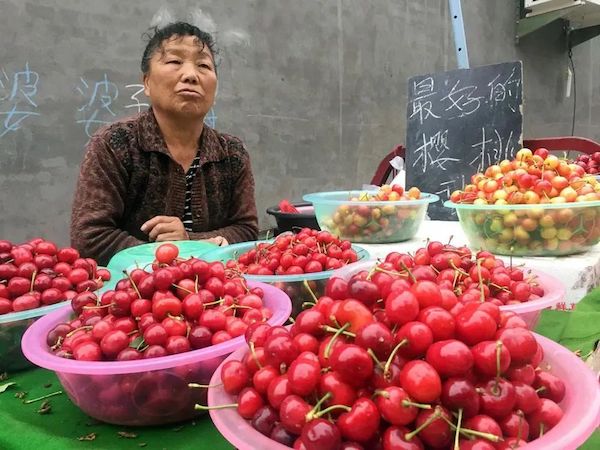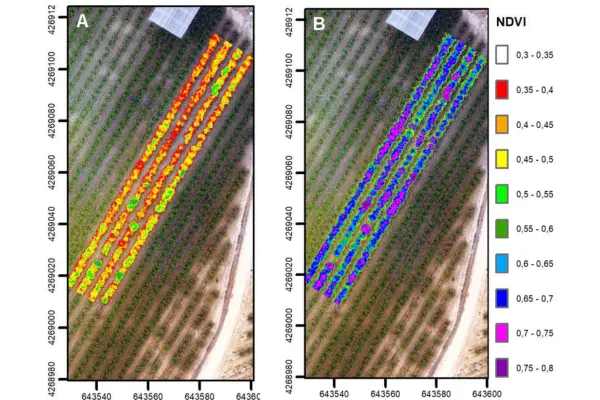2025 will be a bitter year for cherry lovers. The warning comes from EastFruit, which reports a drastic reduction in yields of sweet and sour cherries in major producing countries of Eastern Europe and Turkey, due to intense frosts that hit the region in April.
Complicating the scenario is a structural trend: the gradual reduction in cherry-growing areas in the European Union, due to increased climate risk and the failure to replace old orchards.
Ukraine and Poland under frost siege
Ukraine: the frost hits hard, but the worst concerns sour cherries. In Ukraine, three waves of spring frost have crippled fruit growing, causing significant yet uneven damage. According to early estimates, the country has lost between 35% and 40% of its sweet cherry production, with the southern areas being the hardest hit. Sour cherries, mainly destined for the frozen food industry and processing for export, have suffered estimated losses of between 20% and 25%.
It should be noted that Ukraine is now heavily dependent on imports of sweet cherries, following the Russian occupation of areas traditionally dedicated to this crop. As a result, domestic prices will be higher than usual.
Poland: record losses up to 80%. Poland also suffered severe damage, with frosts between late April and early May compromising up to 80% of crops in some areas. Nationally, a loss of 50–55% is expected for sour cherries, while the situation is even worse for sweet cherries.
Although not a major exporter of fresh produce, Poland has gained importance in the frozen fruit sector, and the repercussions on international markets will be felt.
Emergency in Turkey and disaster in the Balkans
Turkey: frost slashes the crop, prices up by 75%. Between April 10 and 12, 2025, temperatures in some Turkish fruit-growing areas dropped as low as -15°C. The provinces of Salihli, Isparta, and Afyonkarahisar were among the hardest hit, with an estimated production loss of 50–70%.
With Turkey exerting a direct influence on cherry prices in Western Europe, a 75% average increase in wholesale prices is expected during the harvest and export season.
Russia, Hungary, Romania, and Moldova: a widespread disaster. In Russia, cherry yields are expected to fall by 40% to 50%, with prices forecasted to double.
The situation is even more dramatic in Hungary, where up to 90% of orchards have been damaged. In some eastern regions, sweet cherry and stone fruit crops have been decimated. Processing companies are already looking for alternatives, such as frozen sour cherries from Central Asia, especially Uzbekistan.
Romania has also suffered heavy losses, with nighttime frosts down to -8°C between April 6 and 11 severely impacting the provinces of Dâmbovița, Brașov, and Vâlcea. Sweet cherry and sour cherry production could collapse by 70–80%.
In Moldova, the situation is slightly more heterogeneous: according to Yulia Tymoshenko, head of the "Tiferet" project for frozen fruit, companies that adopted protective measures managed to save part of the crops. However, losses still range between 30% and 40%, with peaks of 100% in some northern areas such as Soroca.
Supply shortage and outlook
Uzbekistan is not enough: limited supply, complicated logistics. Uzbekistan might provide a marginal contribution to compensate for the shortfalls, but it will hardly be able to fill the gap left by Turkey and other regional players.
Logistical limitations, high domestic demand, and seasonal misalignment make a significant impact on the Eastern European market unlikely.
Conclusion: fewer cherries for everyone, prices out of reach. 2025 is shaping up to be a critical year for the sweet and sour cherry market. Production has collapsed, prices are set to skyrocket, and for many consumers, these summer delights could become a luxury.
The climate crisis is taking its toll, and the supply chain is being called upon to rethink strategies and investments for the future.
Source: east-fruit.com
Opening image source: SL Fruit Service
Cherry Times - All rights reserved










